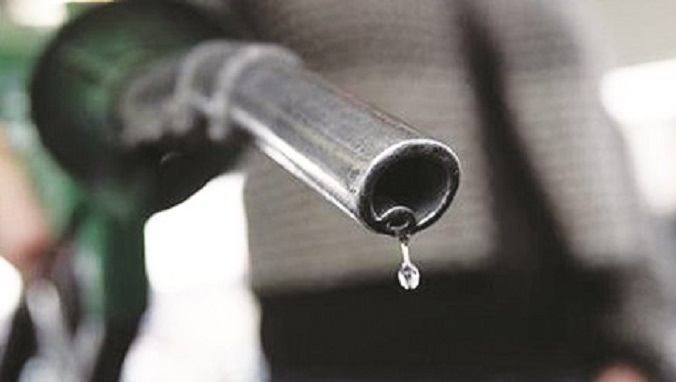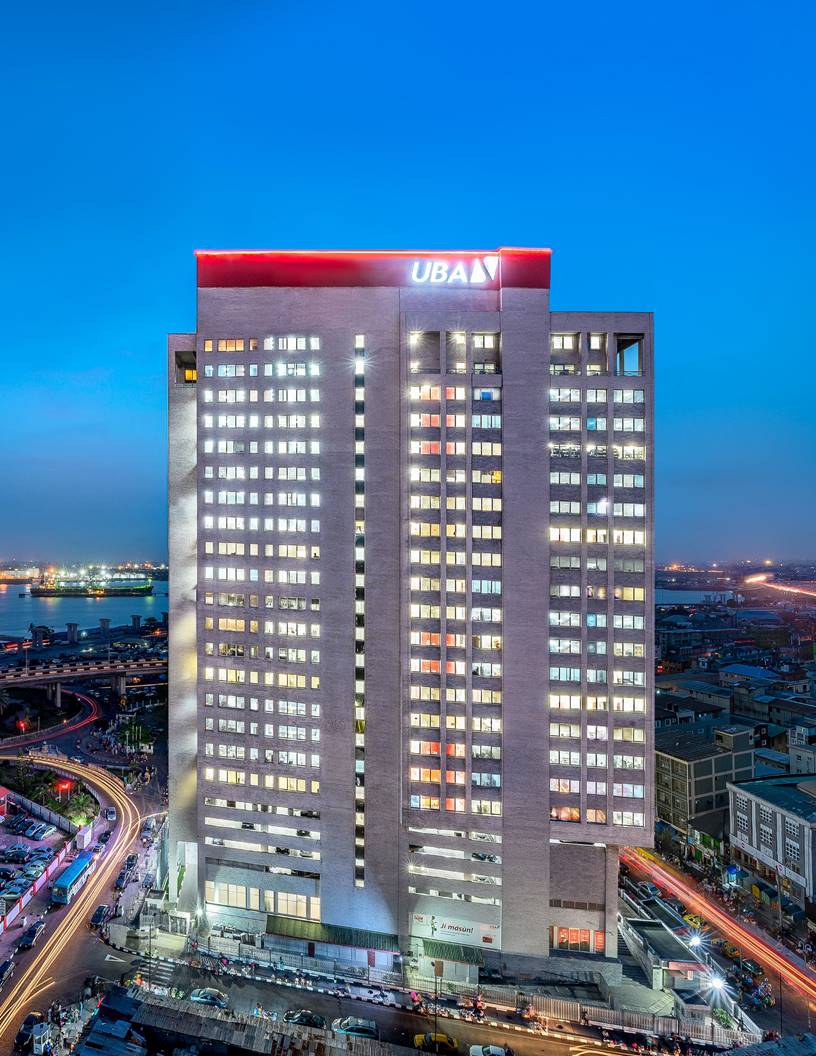E-Financial
FG May Hike Pump Price, Devalue Naira, Others This Year

FSDH Research, trusted providers of market intelligence has said that certain key events, both at the global level and in Nigeria, will influence economic and business activities in 2019.
FSDH Research examines a few of these events and discusses the implications for businesses and investments in Nigeria.
The expected hike in interest rates in major advanced countries will lead to an increase in global yields and may put pressure on currency in Nigeria.
There are strong indications that the US Federal Reserve, Bank of England and European Central Bank will increase interest rates in 2019. The expected increase in the interest rate in the international market may also lead to an increase in the interest rate in Nigeria because of monetary policy adjustments to reduce capital flight.
Nigeria may lose a substantial amount of its projected crude oil revenue due to a limit on crude oil production and the drop in the global crude oil price. This may also lead to a drop in the supply of foreign exchange into Nigeria, resulting in a possible depreciation or devaluation of the Naira.
Nigerian businesses should look for local alternatives, where possible, for the raw materials needed for their production process.
They should also limit or eliminate foreign debt, particularly if they do not have foreign exchange receivables to mitigate the possible foreign exchange risk.
FSDH Research also advises that businesses should put in place appropriate foreign exchange hedging strategies. The Q3 2018 Balance of Payment (BoP) report that the Central Bank of Nigeria (CBN) published shows that earnings from crude oil and gas accounted for 94.4 percent of total export earnings during the period.
The external trade report that the National Bureau of Statistics (NBS) published for Q3 2018 shows that crude oil exports accounted for 85 percent of total exports. Therefore, any adverse movement in crude oil price or production has high negative implications on the Nigerian economy.
Although FSDH Research expects the general election in 2019 to be peaceful, its outcome will determine economic activity and business in Nigeria.
A peaceful election will ensure stability of the Nigerian economy and pave the way for the flow of investments, both Foreign Direct Investments (FDIs) and Foreign Portfolio Investments (FPIs) into Nigeria. Certain longterm business and investment decisions may be taken immediately after the election if the current government retains power.
However, if there is a change in power, investors may wait until after the presidential inauguration on May 29 before they take long-term investment decisions, to give them enough time to access details of the policies of the incoming government.
There are certain macroeconomic realities that the Nigerian government must contend with in 2019.

FSDH Research believes the fiscal deficit in 2019 may be higher than in 2018, and higher than what is projected for the year 2019. In order to execute certain plans that will move the economy forward, government may have to increase borrowing or partner with private sector operators on key projects.
An increase in borrowing will increase the interest rate, while partnership with the private sector will expand economic activity and create new job opportunities.
Already, the ratio of government’s debt service to revenue is high and at an unsustainable level. Therefore, additional debt, in an environment of rising interest rates, may reduce government’s ability to execute critical programmes that will improve the business environment.
While fixed income investors may enjoy higher yields in 2019 than in 2018, businesses may suffer under rising interest costs.
FSDH Research analysis shows that electricity and the pump price of Premium Motor Spirit (PMS) are two key prices that government will need to adjust in 2019 to free up funds for developmental purposes.
The adjustment may increase the inflation rate in the short-term, but it will benefit the economy in the long-term. More investments are required in the power sector than are currently available.
However, the sector may not attract investment in the absence of a cost-reflective tariff. Government already allows an off-grid power supply arrangement based on ‘willing buyer, willing seller’. The tariff at which this arrangement is settled is higher than the tariff for the power from on-grid supply. Appropriate policy responses from government and strategies from the business community may ameliorate the likely negative impacts of these key events in 2019.
E-Financial
UBA Announces Successful Completion of System Upgrade

United Bank for Africa (UBA) has successfully completed its much-anticipated system upgrade, restoring all banking services to normalcy.

In a message to customers, UBA reassured customers that they could now log in to the mobile app and enjoy a smoother, more efficient banking experience.
The bank acknowledged any inconvenience caused by the process and reaffirmed its commitment to providing top-tier financial services.
“We are pleased to inform you that our mobile app upgrade has been completed, and all services have been fully restored. You can now log in and enjoy a smoother banking experience and improved services,” UBA announced.
While the upgrade promises enhanced functionality and reliability, UBA urged customers experiencing any lingering issues to reach out to its 24-hour Customer Fulfilment Centre via 02012808822 or email [email protected] for prompt assistance.
With the completion of the process, UBA reassured its customers of its dedication to innovation and excellence in banking.
E-Financial
SERAP Gives CBN 48-Hour Ultimatum to Withdraw ATM Fee Hike

Socio-Economic Rights and Accountability Project (SERAP) has called on the Central Bank of Nigeria (CBN) to immediately revoke its recent increase in Automated Teller Machine (ATM) transaction fees, describing the move as “Patently unlawful, unfair, unreasonable, and unjust.”

In an open letter addressed to Olayemi Cardoso, governor, CBN, and dated February 15, 2025, SERAP warned that the fee hike would worsen economic hardship for millions of Nigerians, particularly those at the lower end of the financial spectrum.
The rights group gave the apex bank a 48-hour deadline to reverse the policy or face legal action.
The CBN’s new directive mandated that ATM withdrawals at off-site locations, such as shopping malls, airports, and standalone cash points, will attract an N100 charge per N20,000 withdrawal.
Additionally, a surcharge of up to N500 may apply for transactions conducted at certain locations. The new fees are set to take effect from March 1, 2025.
In its letter, signed by Kolawole Oluwadare, deputy director, SRERAP criticized the policy, arguing that it would disproportionately affect struggling Nigerians while benefiting commercial banks.
“The manifestly unfair increase in ATM transaction fees will hit hardest those at the bottom of the economy and exacerbate the growing poverty in the country,” SERAP stated.
The organization further argued that financial institutions should bear the cost of banking operations, rather than shifting the burden onto customers, particularly those with limited financial means.
SERAP accused the CBN of prioritizing the interests of banks over the welfare of ordinary Nigerians, many of whom already struggle with the high cost of living.
The group pointed out that banks continue to report record-breaking profits while imposing excessive charges on customers.
“CBN policies should not be skewed against poor Nigerians and heavily in favour of banks that continue to declare trillions of naira in profits, mostly at the expense of their customers.
“The increase in ATM transaction fees will inflict misery on Nigerians and contribute to human rights abuses,” the letter read.
SERAP also noted that the policy contradicts President Bola Tinubu’s commitment to tackling poverty in Nigeria.
The rights group argued that the CBN’s action violates multiple legal provisions, including the Nigerian Constitution, the CBN Act, and the Federal Competition and Consumer Protection Act.
SERAP highlighted specific sections of these laws that prohibit unfair business practices and protect consumers from exploitative charges.
According to SERAP, the increase in ATM fees discriminates against low-income Nigerians who may struggle to afford the higher fees, creates a two-tiered financial system that favours the wealthy, contradicts the CBN’s stated mission to promote national economic well-being, and violates international human rights obligations under the United Nations Guiding Principles on Business and Human Rights,
“The CBN has responsibilities under the UNGPs to take effective steps to avoid or mitigate potential human rights harm and to consider ending any charges or transaction fees where severe negative human rights consequences cannot be avoided or mitigated,” SERAP asserted.
“We would be grateful if the recommended measures are taken within 48 hours of the receipt and/or publication of this letter.
“If we have not heard from you by then, SERAP shall take all appropriate legal actions to compel you and the CBN to comply with our request in the public interest,” the letter warned.
E-Financial
FG Seeks Fresh $300m Loan from World Bank for Health Security

Federal government has engaged the World Bank for a fresh $300m loan to strengthen Nigeria’s health security infrastructure.

Information obtained from the World Bank showed that the loan, which is under consideration, will be implemented by the Nigeria Centre for Disease Control (NCDC) with the Federal Ministry of Finance acting as borrower on behalf of the Federal Government.
According to information on the World Bank website, the loan project is expected to “increase regional collaboration and health system capacities to prevent, detect, and respond to health emergencies in the Federal Republic of Nigeria.”
The project is currently in the pipeline stage, with the disclosure date scheduled for February 6, 2025.
The World Bank board is expected to give its approval on July 30, 2025, following necessary assessments. The appraisal is set for April 14, 2025, and implementation will commence in the 2026 fiscal year.
According to a document on the concept of environmental and social review, the Nigeria Health Security Programme aligns with broader government efforts to enhance disease surveillance, diagnostic capabilities, emergency response, and laboratory networks across the 36 states and the Federal Capital Territory.
The programme’s primary objective is to enhance regional collaboration and strengthen Nigeria’s health systems to deal with emergencies. It falls within the World Bank’s investment in health, nutrition, and population sectors across Western and Central Africa.
According to the Environmental and Social Review Summary of the project, HeSP will expand molecular laboratory capacity, upgrade primary healthcare centres, establish emergency operation centres, and construct warehouses.
It will also deploy mobile laboratories and install water, sanitation, and hygiene facilities alongside solar energy systems to support health infrastructure improvements.
Although the total project cost is yet to be determined, the World Bank has committed $300m to the initiative. The funds aim to bolster Nigeria’s pandemic preparedness and improve response mechanisms for public health threats.
The initiative comes as Nigeria strengthens its public health infrastructure following lessons from previous outbreaks, including COVID-19.
If approved, the loan will support the NCDC in improving disease surveillance, diagnostics, emergency response, and laboratory services.
Nigeria has previously secured funding from international financial institutions to boost healthcare resilience, including financing for vaccine procurement, emergency medical services, and infrastructure development.
However, the project, categorised as a high-priority public health intervention, carries substantial environmental and social risks due to potential health, safety, and ecological concerns associated with infrastructure expansion.
Identified risks include increased medical waste, occupational hazards, and heightened energy and water demands.
Social risks range from potential grievances from stakeholders to concerns over land acquisition and implementing health interventions in conflict-prone areas.

 E-Financial2 days ago
E-Financial2 days agoSERAP Gives CBN 48-Hour Ultimatum to Withdraw ATM Fee Hike

 E-Financial2 days ago
E-Financial2 days agoFG Seeks Fresh $300m Loan from World Bank for Health Security

 General News2 days ago
General News2 days agoFG Drops Merger of NCAA, NAMA

 News2 days ago
News2 days agoBinance Chief Insists Some FG Officials, Reps Demand $150m Bribe

 News2 days ago
News2 days agoinDrive Unveils Cashless Bank Transfer Feature in Nigeria

 Telecom20 hours ago
Telecom20 hours agoToriola, MTN Nigeria CEO again Defends Tariff Hikes amidst Backlash

 E-Financial2 days ago
E-Financial2 days agoCardinalStone Acquires Radix Pension Managers

 Telecom2 days ago
Telecom2 days agoNITDA Pledges to Foster Innovation with Cloud Infrastructure and AI Applications




















